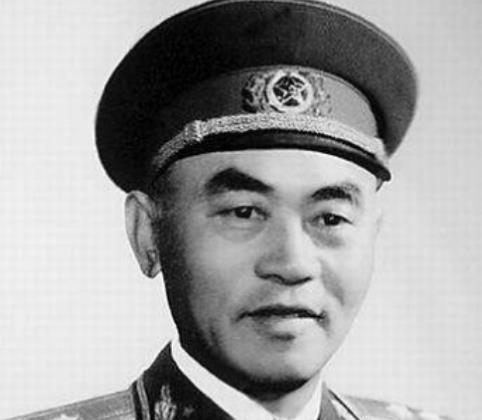In the autumn of 1955, in recognition of the generals who had made important contributions to the victory of the Chinese revolution and the founding of New China, our army held the first major award in history. The chief and deputy commanders and deputy political commissars of the 65th Army of Ichino appeared on the list of awards. In the end, the military commander Qiu Wei and the deputy commander Xiao Yingtang were both awarded the rank of major general, and the political commissar Wang Daobang and the deputy political commissar Cai Shunli both became lieutenant generals. When the big title is awarded, the ranks of the commanders of the various armies are generally between major general and lieutenant general, so it is not surprising that Qiu Wei and Xiao Yingtang conferred major generals, and the political commissar Wang Daobang is also reasonable.

Lieutenant General Cai Shunli
The only surprise was Cai Shunli, the deputy political commissar of the 65th Army, who was said to be lower in rank than the commander Qiu Wei, who was awarded major general, how did Cai Shunli become a lieutenant general? Today we will talk about this story. Cai Shunli is a native of Ji'an, Jiangxi, and was forced to drop out of school after only a few years of private school due to his family's poverty. In order to learn a craft to make a living, his father sent him to a tailor shop in the town as an apprentice, when Cai Shunli was only 11 years old.
Later, when the general recalled these days, he even said that it was too bitter, and before dawn, he was called up by the tailor to do a miscellaneous job, and he could not rest for a few days all year round. After a year of hard work, there was no wage, and when he returned home during the Spring Festival, the master only gave a few new pieces of cloth. Suffering and suffering without wages, not to mention, the master did not teach him techniques, all day long just let people do chores, completely treat people as long-term workers. Cai Shunli barely worked for a year and did not do it.
General Cai Shunli
In the spring of 1927, at the age of 13, Cai Shunli joined the village children's regiment, responsible for guarding the guerrillas and sometimes delivering intelligence. Although young, Cai Shunli was particularly clever, and he did everything well and was praised many times. Two years later, 15-year-old Cai Shunli officially joined the Red Army. Due to his young age, he was assigned to the 2nd Company of the Independent 2nd Regiment as a trumpeter. After that, he also served as a platoon leader and a deputy company commander, and participated in the anti-"encirclement and suppression" struggles and the Long March in the Central Soviet Region.
After the outbreak of the War of Resistance Against Japanese Aggression, Cai Shunli entered the 115th Division of the Eighth Route Army and successively served as an instructor of the 2nd Company of the Cavalry Battalion, an instructor of the Cavalry Battalion of the Jin-Cha-Ji Military Region, and the deputy director of the Organization Department of the Military Region and the chief of the Cadre Section. After the victory of the War of Resistance Against Japanese Aggression, Cai Shunli participated in the Liberation War and successively served as the political commissar of the 9th Brigade of the 3rd Column of the Jin-Cha-Ji Field Army, the deputy political commissar of the 8th Column of the North China Military Region, and the deputy political commissar of the 65th Army of the North China Field Army. During his tenure, he led the troops to participate in the Battles of Qingfengdian, the Battle of Taiyuan, the Battle of Fuyu and the Liberation of Lanzhou, and made many achievements.
Major General Qiu Wei
So why is Cai Shunli, as deputy political commissar, higher in rank than military commander Qiu Wei? This has to start from the positions of the two after the founding of the country. After the founding of New China, Qiu Wei was transferred to the 20th Corps, and after the outbreak of the War to Resist US Aggression and Aid Korea, he became the deputy chief of staff of the 20th Corps of the Volunteer Army, and after the death of Li Xiang, acting commander of the 67th Army, Qiu Wei took over his post. For a long time thereafter, he served as commander of the 67th Army. In 1952, when he was ranked, he was given the rank of major general, so he was awarded the rank of major general in 1952. Cai Shunli served as vice minister of the Ministry of Security of the General Political Department shortly after the founding of the People's Republic of China, and in 1952 he was assigned the rank of lieutenant general.